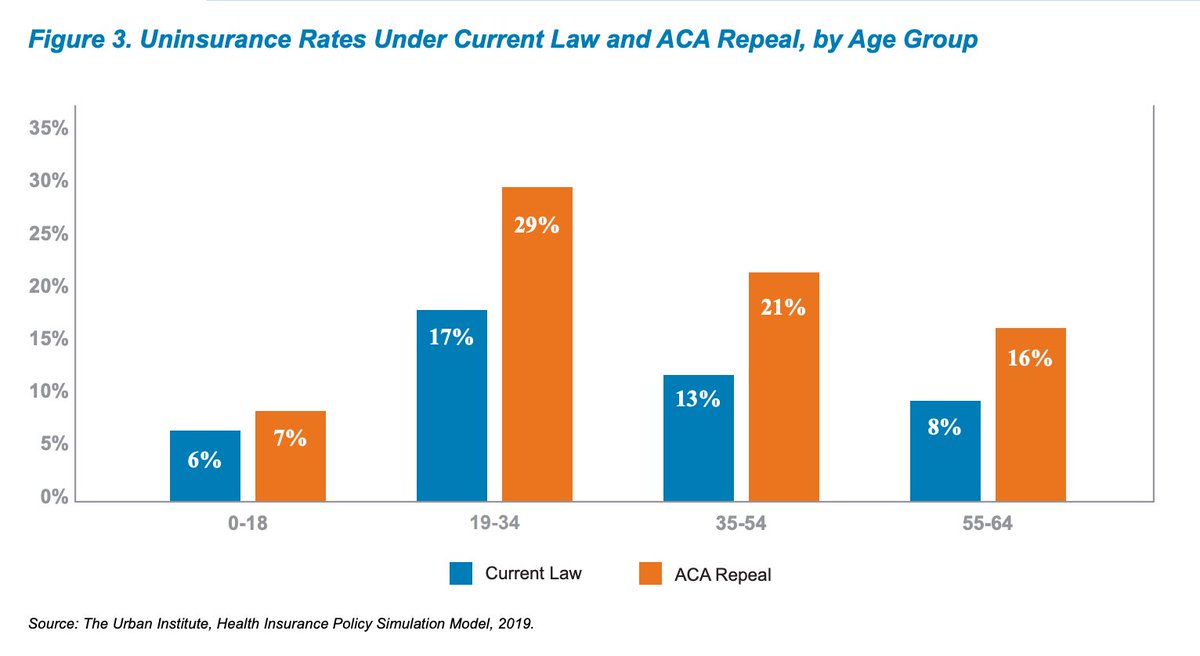
EVP for policy, @amprog. Previously: deputy director of National Econ Council in Obama WH, policy @hillaryclinton, @centeronbudget. All views my own.
How to get URL link on X (Twitter) App


https://twitter.com/JakeSherman/status/1291818580980518912Per Politico, the Trump admin is considering allowing states to use money from a $150 bn CARES Act fund to top off benefits, in lieu of the Federal $600 bump that expired almost two weeks ago politico.com/news/2020/08/0… 2/
https://twitter.com/FlitterOnFraud/status/1282702369076195328The failed public health response has created uncertainty over how long before we get to "normal." And a lack of policy clarity means small businesses, state/local governments, workers and households all make decisions that hurt public health and the recovery in the meantime 2/
https://twitter.com/Groundwork/status/1268938234396061699A2 p. 2: Labor market discrimination, mass incarceration, enormous racial wealth gaps, residential segregation -- simultaneously legacies of history and ongoing features of our economy and society -- all contribute #beyondthenumbers
https://twitter.com/Neil_Irwin/status/1253672490796285954The debate over PPP extension this week was between one side that wanted to use the political urgency of a must-pass legislative moment to get more fiscal relief and one that wanted to use it to delay or prevent that relief
https://twitter.com/jimtankersley/status/1252951942055317504Under typical SBA guarantee programs, lenders are on the hook for some portion of the loan -- which requires them to make a determination of whether a small biz is creditworthy. So there's intentionally a role for banks to have discretion as to who gets an SBA loan or not.

https://twitter.com/MTPFirstRead/status/1053076052254343170There is some sort of collective forgetting about the ACA debate last year as though Republicans acknowledged repeal would undo pre-ex protections and have now changed course. They just lied about it last year, and they are repeating the lie now — just with slicker campaign ads.
https://twitter.com/BCAppelbaum/status/1047205512012546048Important to remember this story is both about Trump’s unique status as a grifter and all the ways in which mainstream GOP governance has permitted the ultra-rich to pass on their wealth untaxed and undertaxed as a matter of principle

https://twitter.com/jmartNYT/status/961943816969359361Since first Ryan budgets, I think press has often been quite dismissive of idea that GOP would ACTUALLY pursue deep cuts to health care (esp. Medicaid) alongside unpaid for tax cuts -- before it became the actual '17 legislative agenda 2/

 (Snippet from @fischlerCQ's story that is paywalled)
(Snippet from @fischlerCQ's story that is paywalled)

https://twitter.com/lilybatch/status/938251082194669569How long would it have taken smart, outside folks to spot this mistake if anyone had been given the chance to look at the bill? A day? A few hours?
https://twitter.com/arappeport/status/935280166925893633What you don't get when things are dropped onto the floor: